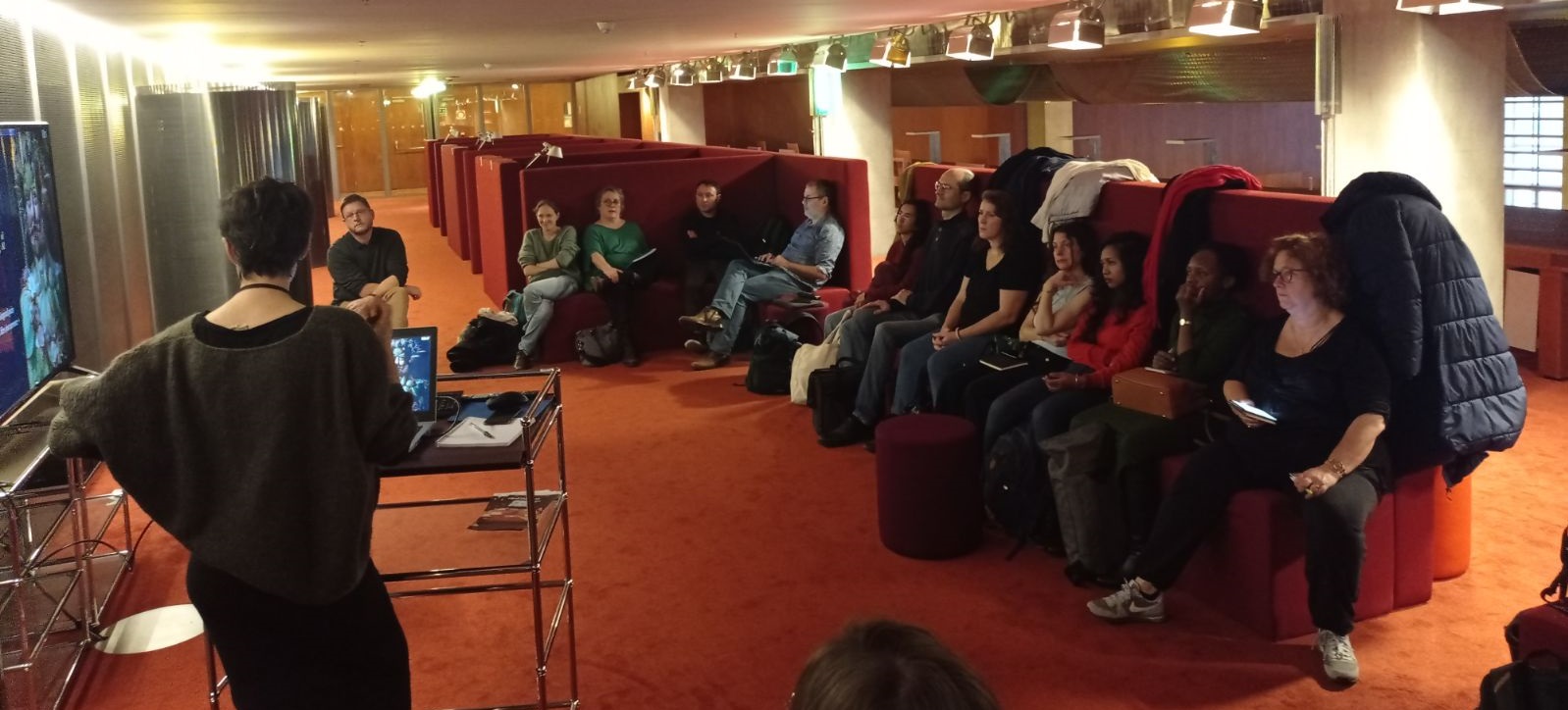DGfS 2023 | Workshop | Uninflectedness
The financial support of the Agence Nationale de la Recherche under the “Investissements d’Avenir” programme with the reference ANR-10-LABX-0083 is gratefully acknowledged.
Workshop description
Coordination: Sebastian Fedden (Université Sorbonne Nouvelle, Paris), Enrique L. Palancar (CNRS/SeDyL, Paris)
Work on inflectional morphology often departs from the assumption that inflection is regular and productive. In canonical inflection, all lexemes in a given word class have the same inflectional properties. However, many languages have subsets of lexemes that do not inflect, while the rest of the items in the same word class do. For example, while Russian nouns typically inflect for two numbers and six cases, the noun pal’to ‘coat’ has the same form for all number and case combinations. Examples can also be found in agreement, where some lexemes may not inflect as targets while others do.
Uninflectedness raises (i) systemic, (ii) typological and (iii) diachronic questions:
(i) It contributes to the question of partial rules. Answering questions such as how and why languages use partial rule systems when it would appear simpler to have general rules will advance our knowledge of the role of grammatical rules in human language.
(ii) Uninflectedness has not been investigated from a typological perspective. We need to ask how widespread it is and whether it displays typological distributions.
(iii) Languages are systems in flux, and to reduce the cognitive load that a partial rule system entails we might assume that uninflectedness should be ironed out over time and all items become either inflecting or non-inflecting.
In this workshop we chart the extent of the attested phenomena in a range of different languages. We take significant steps towards the development of a typology and aim to better understand the factors impacting the phenomenon.
Presentation
<> Greville G. Corbett (University of Surrey), The dog didn’t bark, the noun didn’t inflect: A typology of significant absences
<> Ursula Doleschal (University of Klagenfurt), The conditions of uninflectedness in nouns in the Slavic languages
<> Dunstan Brown (University of York), Harald Baayen (University of Tübingen), Neil Bermel (University of Sheffield), Yu-Ying Chuang (University of Tübingen), Roger Evans (University of York) & Alex Nikolaev (University of Eastern Finland), Determining the relationship between uninflectedness, overabundance and defectiveness
<> Javier Caro Reina (University of Cologne), Deflection of proper names in Romanian
<> Bożena Cetnarowska (University of Silesia, Katowice), Uninflectedness of modifiers in composite noun-noun units in Polish
<> Jerzy Gaszewski (University of Łódź), Uninflectedness as a rule in Polish, an inflected language
<> Andrew Spencer (University of Essex), Some concepts and consequences of uninflectedness
<> Maria Copot (Université de Paris), Ninoh Agostinho Da Silva (Université de Paris), Ahmed Beji (Université de Paris), Arno Watiez (Université de Paris) & Olivier Bonami (Université de Paris), Emerging uninflectedness in French clipped verbs
<> Vincent Renner (Université Lumière Lyon 2) & Adam Renwick (Université Grenoble Alpes), On the emergence of uninflectedness: The case of incipient verbal inflection dropping in present-day French
<> Katja Friedewald (University of Göttingen), French « voilà »: An uninflectable form arising from an inflecting verb
<> Louise Esher (CNRS/Llacan, Paris), Loss of inflection in the diachrony of French nouns
<> Michele Loporcaro (University of Zurich), Uninflectedness as a factor in agreement loss
<> Anna Thornton (University of L’Aquila) & Paolo D’Achille (Roma Tre University), Uninflectedness in Italian nouns and adjectives
<> Matthew Baerman (University of Surrey), Greville G. Corbett (University of Surrey), Alexander Krasovitsky (University of Surrey/Oxford) & Maria Kyuseva (University of Surrey), Diachronic paths to uninflectedness in South Slavonic
<> Lameen Souag (CNRS-LACITO, Paris), The diachronic stability of uninflectedness in Berber
<> Yvonne Treis (CNRS/Llacan, Paris), Kambaata aspect marking: On an unusual but systematic case of syncretism
<> Katherine Walker (University of Amsterdam) & Eva van Lier (University of Amsterdam), Uninflected verbs: Typological trends and a corpus-based comparison of two Nakh-Dagestanian languages
<> Jenny Audring (Leiden University), Situating constructional non-inflectedness
<> Viktor Köhlich (Goethe University Frankfurt), The uninflecting word class rentaishi in Modern Japanese

